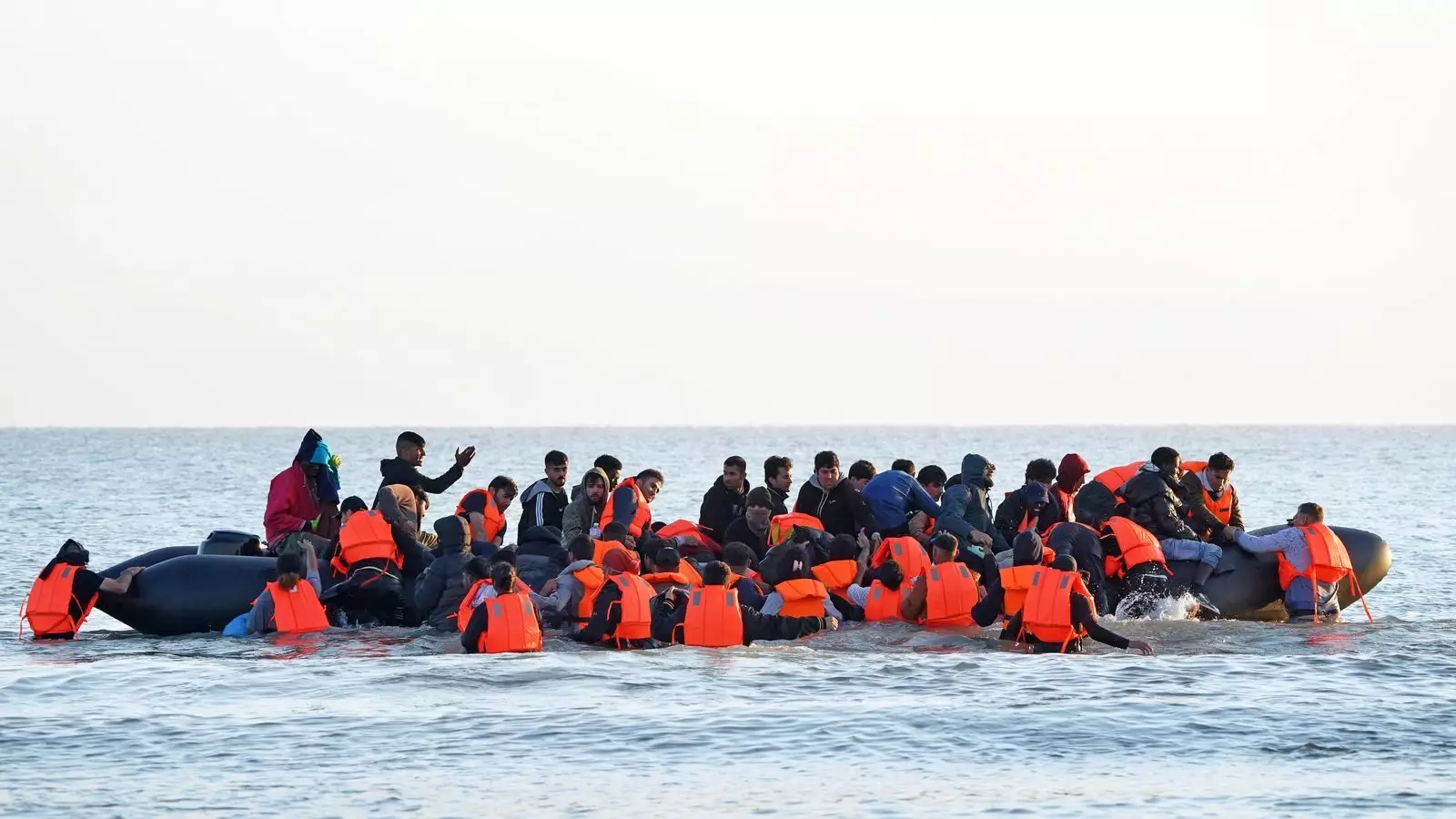Recent provisional government data has revealed that a staggering 36,816 migrants successfully crossed the English Channel into the UK in 2024. This number marks a notable 25% increase compared to 2023, which recorded 29,437 arrivals via perilous small boat journeys. While these figures indicate a significant uptick, they also underscore a complex narrative: the current numbers are still 20% lower than the extreme high of 45,774 arrivals witnessed in 2022, suggesting an ongoing fluctuation in migration patterns across this treacherous waterway.
The English Channel is recognized as one of the busiest shipping lanes in the world, and the dangers involved in undertaking such crossings cannot be overstated. Although the Home Office data did not disclose the specific number of fatalities for 2024, it has been indicated that this year was particularly deadly, with the French coastguard reporting 53 lives lost as individuals risked their lives to find refuge or a better life in the UK. The rise in crossings, despite the risks involved, prompts critical questions regarding the motivations of those embarking on such journeys and the conditions in their home countries that precipitate such desperate measures.
A stark look at historical data reveals a dramatic increase in migrant arrivals since 2018. The figures have climbed from a mere 299 in 2018 to a peak of 28,526 in 2021 before settling back slightly in subsequent years. The escalation of arrivals raises important reflections on the socio-political climates leading to increased movement towards safer territories. While asylum seekers from countries like Ukraine and Afghanistan can access legal pathways to the UK, many migrants are left seeking dangerous alternatives, often relying on criminal gangs. This dichotomy emphasizes the urgent need for comprehensive policy solutions that reflect the complexities of modern migration.
Legal avenues for asylum remain restricted for many, with only recognized refugees by the UN and specific cohorts able to settle legally in the UK. This limitation effectively pushes individuals towards perilous and sometimes illegal channels, bringing the issue of people smuggling into sharper focus. The British political response—summed up by statements from major political parties—aims at reducing these dangerous crossings. With promises from Labour to “smash the gangs,” the political rhetoric underscores a growing focus on addressing the facilitation of illegal migration while also recognizing the humanitarian crises that fuel this ongoing challenge.
The rise in crossings across the English Channel illustrates a pressing humanitarian crisis requiring thoughtful policy reform. The responsibility lies not only in dismantling smuggling networks but also in understanding the underlying issues driving individuals to seek asylum in the UK. A multi-faceted approach that combines enforcement with robust support for refugee resettlement and integration may offer a more balanced solution. Moving forward, UK policymakers must address the immediate needs of migrants while fostering an environment that preserves human dignity, ensuring a compassionate response amidst a complex, evolving landscape of global migration.

Leave a Reply